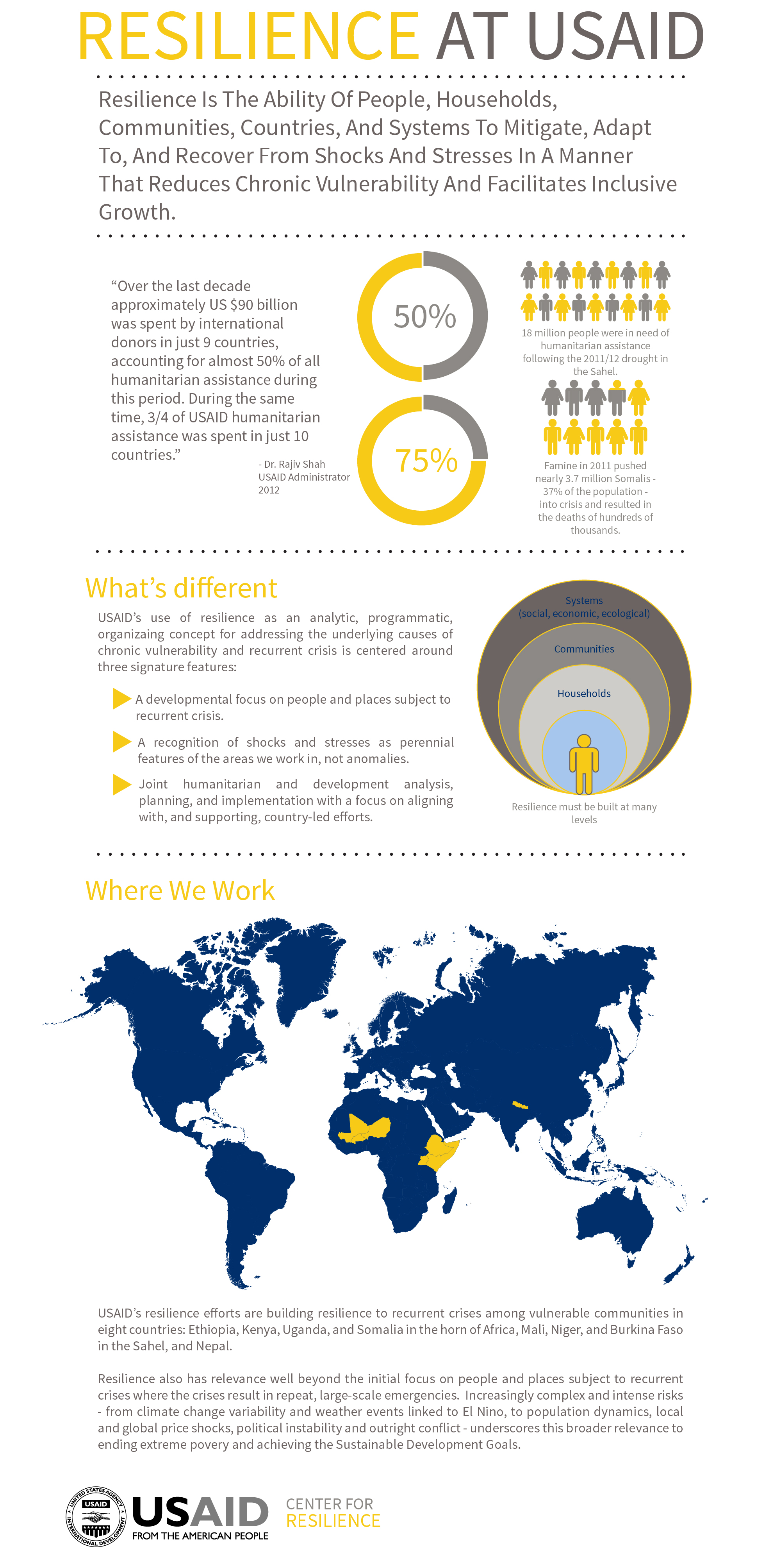Resilience Is The Ability Of People, Households, Communities, Countries, And Systems To Mitigate, Adapt To, And Recover From Shocks And Stresses In A Manner That Reduces Chronic Vulnerability And Facilitates Inclusive Growth.
“Over the last decade approximately US $90 billion was spent by international donors in just 9 countries, accounting for almost 50% of all humanitarian assistance during this period. During the same time, 3/4 of USAID humanitarian assistance was spent in just 10 countries.” - Dr. Rajiv Shah USAID Administrator 2012
50% 18 million people were in need of humanitarian assistance following the 2011/12 drought in the Sahel.
75% Famine in 2011 pushed nearly 3.7 million Somalis - 37% of the population - into crisis and resulted in the deaths of hundreds of thousands.
What’s different
USAID’s use of resilience as an analytic, programmatic, organizaing concept for addressing the underlying causes of chronic vulnerability and recurrent crisis is centered around three signature features:
- A developmental focus on people and places subject to recurrent crisis.
- A recognition of shocks and stresses as perennial features of the areas we work in, not anomalies.
- Joint humanitarian and development analysis, planning, and implementation with a focus on aligning
Where We Work
USAID’s resilience efforts are building resilience to recurrent crises among vulnerable communities in eight countries: Ethiopia, Kenya, Uganda, and Somalia in the horn of Africa, Mali, Niger, and Burkina Faso in the Sahel, and Nepal.
Resilience also has relevance well beyond the initial focus on people and places subject to recurrent crises where the crises result in repeat, large-scale emergencies. Increasingly complex and intense risks - from climate change variability and weather events linked to El Nino, to population dynamics, local and global price shocks, political instability and outright conflict - underscores this broader relevance to ending extreme poverty and achieving the Sustainable Development Goals.








Comment
Make a general inquiry or suggest an improvement.